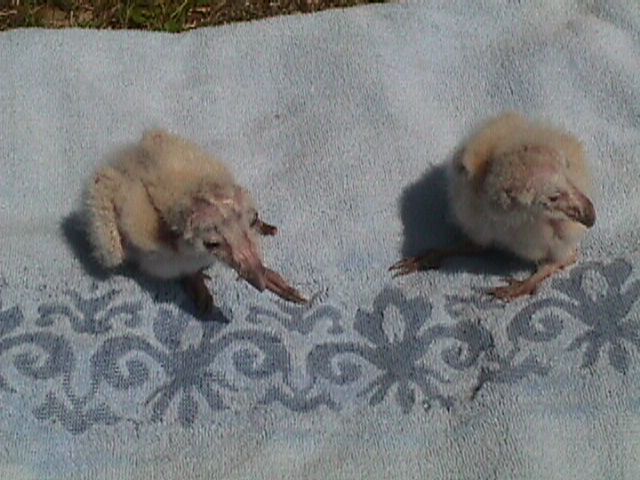The Memphis Zoo Raptor Rehabilitation Program
The Raptor Rehabilitation Program at the Memphis
Zoo & Aquarium is the largest raptor rehabilitation program between Chicago and
New Orleans. An average year will see around 200 raptors passing through the program. Two
avian vets and two vet techs are on hand seven days a week to care for the birds. With a
release rate of almost 60% the rehab program has a release rate almost double the national
average.
The rehab program was started over 20 years ago with a single Red-tailed Hawk. Since then
the number of species seen on a regular basis includes five species of hawks (Red-tailed,
Red-shouldered, Cooper's, Broad-winged,
and Sharp-shinned), five species of owls (Barn, Barred, Screech, Great Horned,
Short-eared), state and federal endangered species (Bald Eagle, Mississippi Kite,
Peregrine Falcon), and several less common raptor species like Osprey, Short-eared Owl,
Saw-whet Owl, both species of new world vultures (Turkey and Black), and the Golden Eagle.
A large number of orphan or abandoned baby raptors are raised each year and released back
into the wild. In 1998 a total of some 40 baby raptors were raised. The most common
species was the Barn Owl, followed by the
Great Horned Owl. Other species represented were American Kestrel, Barred Owl, Screech
Owl, Mississippi Kite, Broad-winged Hawk, and Red-shouldered Hawk.
Mississippi kite- juvenile Great Horned Owl- baby
(click on pictures above for more info on Mississippi kites and GHOs/raptor orphans)
The most common injuries seen in 1998 were collision injuries and gunshots. These two
injuries made up almost 70% of the total injuries in 1998. Other common problems were
poisonings, birds trapped in buildings, oiled birds,
birds caught in barbed wire or fishing line, and birds suffering from starvation. It is
interesting to note that in 1998 not a single bird was admitted with an injury caused by
another animal. All injuries were the result of contact in some way with humans.
If you would like to know more about the Raptor Rehabilitation Program feel free to
contact the coordinator Knox Martin. He can be reached at the Memphis Zoo and Aquarium at
1-901-726-4787, ex. 3350. e-mail at
Knoxmart@gateway.net.
(Click on above for more information on barn owl chicks)


Above two pictures are of a bald eagle recently brought into the rehab program from the Mississippi Wildlife division (3-10-99). After some TLC (bloodwork, radiographs, and physical examination normal) it was released back into the wild (3-16-99).


